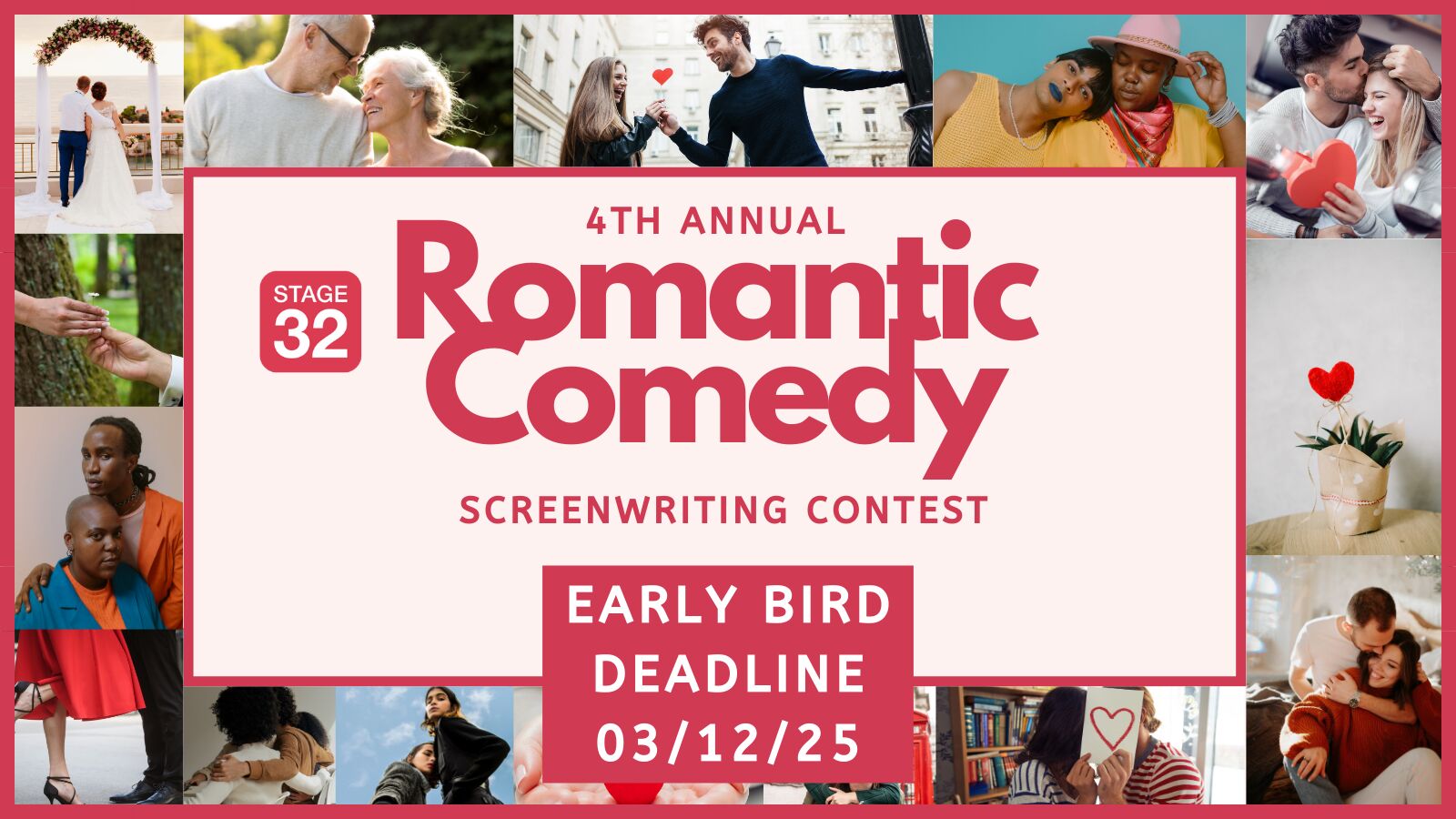We are starting out with an idea, and we aren't very sure we know where we are going. All we know is we are ready to dive into our next project. My boyfriend and I are both accomplished photographers and have been recently playing around with video. We've got some gear, D.I.Y. rigged up some more, and have been playing with shooting short clips. Me drinking tea, yelling at him to stop recording me, him being goofy while cooking, in the park trying to feed squirrels... you know, the usual couples stuff. I'm also an actress looking to pull together a demo reel for audition purposes. Then we thought, why not shoot a short together? It took us couple weeks to come up with an idea we both felt good about without forcing it. Now, I believe we have a good base story line and want to bring our project into the creating phase. I admit, I know nothing about screenwriting, so i'm reaching out for some good tips. What is the process of creating a short film from idea to screen?



Thanks Steven, that's what we are working on now. We have the basic story outlined. We are working on refining it, character motivation, and all around working to make it a good story, as you said. I look forward to the journey ahead and I appreciate the luck. We will need it :)
if yall are photographers then that will be a huge asset when planning out the storyboards. It always helps me with my projects to visualize scenes and ThNk about the project as a series of paintings or portraits that tell the story. After all movies are visual mediums so th script should be about writing what you see. when I get lost I just return to thinking about the profession of these visuals in my head and how they will tell the story. So I would say use your strength as photographers to writer, plan, direct and edit.
1 person likes this
Since you've got a story planned out, just try and create dialogue that feels natural. The story should flow naturally. A short is definitely a good way to practice this.
One thing you you might want to take into consideration: since you stated that you're trying to make this a demo reel showcasing your talents, make sure you keep the focus on you. Not 100% on you, but I think you have to walk a fine line between your desires as a cinematographer (which may be quite creative and expansive), and in keeping the focus on you. Given that condition, think more like the great New York independent filmmaker John Cassavetes (rest in peace, Mr. C.), who kept his focus on his subjects most of the time. Whatever your story is, and whatever your script ends up being like, I'd keep it as focused on you as possible, and as Cassavetes-like as possible. In bocca al lupo!
In hearing everyone's great advice you need to format your script into a screenplay i.e. INT. HOUSE - MIDDAY etc etc I would suggest purchasing the Screenwriters Bible because it can REALLY help with your format even telephone conversations!! Format it for you, other actors, casting your talent and it will help you when you when you need a line read, organize your filming i.e. night or day It's your blueprint for your story!
Wow, all of this advice is so helpful! Thank you all for taking part in the discussion. Pete - Storyboarding is such an important step. We've already done some test shots around the apartment to get an idea of the angles and shots we can achieve in this space. This should be helpful when we are ready to start the storyboard. I assume the script comes first? Hopefully our photography skills pay a huge part in all the aspects you mentioned :) Parker - You said that a short would be good practice... we are thinking of possibly making this into a short webseries... which would make each episode around 6-8 minutes and probably only around 6 episodes. Do you think that this could work too? Bill - That's a VERY good point, and I think something we were actually losing site of, so i'll be sure to try to steer the dialogue we create more in that direction. Jeremy - This is exactly what I was looking for! I'll definitely be getting a hold of this book. I just looked it up and it looks like it's going to be a tremendous help. Especially, when we set up for filming. Thanks so much!!
1 person likes this
The screenwriter's bible by David Trottier is a great source. For Dialouge specifically I recommend Dialouge Secrets by William Martel. In face check out all of William Martel's bluebook series. Although for me the first step is not to worry so much about all the technical details in the first draft, but simply write whatever pops in my head, other wise I start over thinking it and it's to sluggish. As for the storyboard, I don't do a detailed one until after the script, but I do a very general one for the basic narrative scenes that serves as my outline for the story. Some people use index cards with the possible scene headins and breif description of what will happen in each scene. This is a good way to get the pacing down and have somethning to write towards when you get started with your first draft. The ScreenWriter's bible walks through a lot of those approaches to the first draft, but agian I always just write all I can think of for the first draft steering my way back on track to the next general scene I have in mind and then the real work of revision starts. But by over writing like this first I then have plenty to work with to revise as needed and shape from jumbled mess into beauty. Those blue book seires by Martel you can get for kindle app, and are excellent after you have a rough draft to read and then go back to your work and shape up. Just some thoughts on what works for me...
1 person likes this
In terms of structure, you have the internet which is of course immensely resourceful. I would recommend finding the screenplay to one of your favourite movies and read/watch it side by side. It gives you a real insight into how the magic works! For scripts try imsdb.com Best of luck!
1 person likes this
I definitely like the idea of a series. Keeping each one short allows you to focus on each script, but by making a series, you can tell a more complete and rounded story. And as I've found, just start writing and keep writing, it's always good to just get the feel of it. I can't wait to see where this goes for you guys.
1 person likes this
A lot of good advice here. I would suggest the following. Write the first screenplay, and then don't look at it for a week. Then have someone else read it to you. When I started writing I found that by doing this, I found all the things that sounded false or off. Another thing I found was that I often had excessive exposition. As much as possible, show it, don't say it. The example I often use is if a character in a Horror movie has to say "I'm scared." You might want to review what you are filming. It should be evident that they are scared. Just two things I ran into.
Pete & Jeremy - I know you recommended other books, but have you heard of "How to Write a Movie in 21 Days" by Viki King? My roommate let me borrow it. Pete, I agree not to get too technical this time around. Honestly, minimal dialogue would be best and i'm just looking to nail down the story in 6 episodes of a web-series. The storyboard we have running now is developing nicely, but it's not a visual storyboard yet. Index cards is a GREAT idea and I will definitely be using up the index cards I didn't have a use for before, so that you for that :) I will definitely look into these books once I get a little farther into the project. S.A. - Yes, I definitely plan to do that! I downloaded The Silver Linings Playbook for this purpose :) Thanks! Jim - The three C's? Uh oh... i'm in for it. Haha Parker - Yes!! We are DEFINITELY leaning towards the series. We have the first, last, and 3rd episodes mapped out with a pretty concrete idea. We are planning on about 6 episodes, so now we are trying to figure out the best way to make all three pieces melt nicely into each other. Owen - Thanks for the concern, and you have very valid points! We have 3 locations picked out already. My apartment, which will be the majority of the shooting, my dad's place in the Florida Keys, which we are visiting next month for a wedding, and a penitentiary in Philly. We are trying to keep costs minimal. I have some equipment already, but we may purchase more if it can double as a reasonable photography buy as well. John - Great suggestion! I will definitely do this once I have a script in hand, even just the first draft. Excessive exposition is something I want to avoid. I hope for it to be a strong actor piece, as I will also be using it for my reel.
Boomer - Thanks! I'll definitely read through it as it may provide a good beginner's view for me. I'm very excited :)